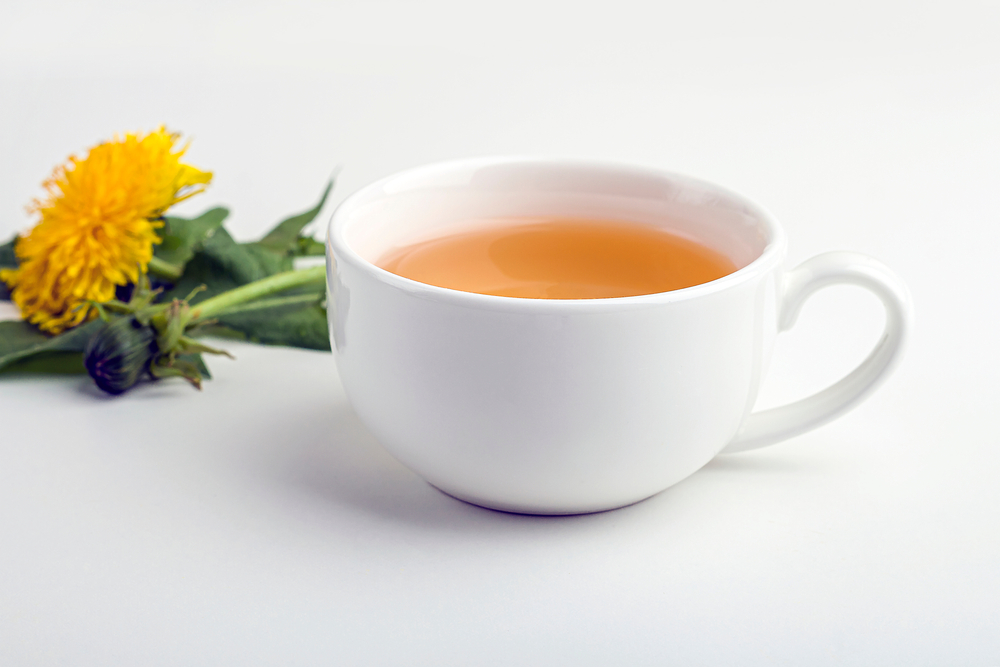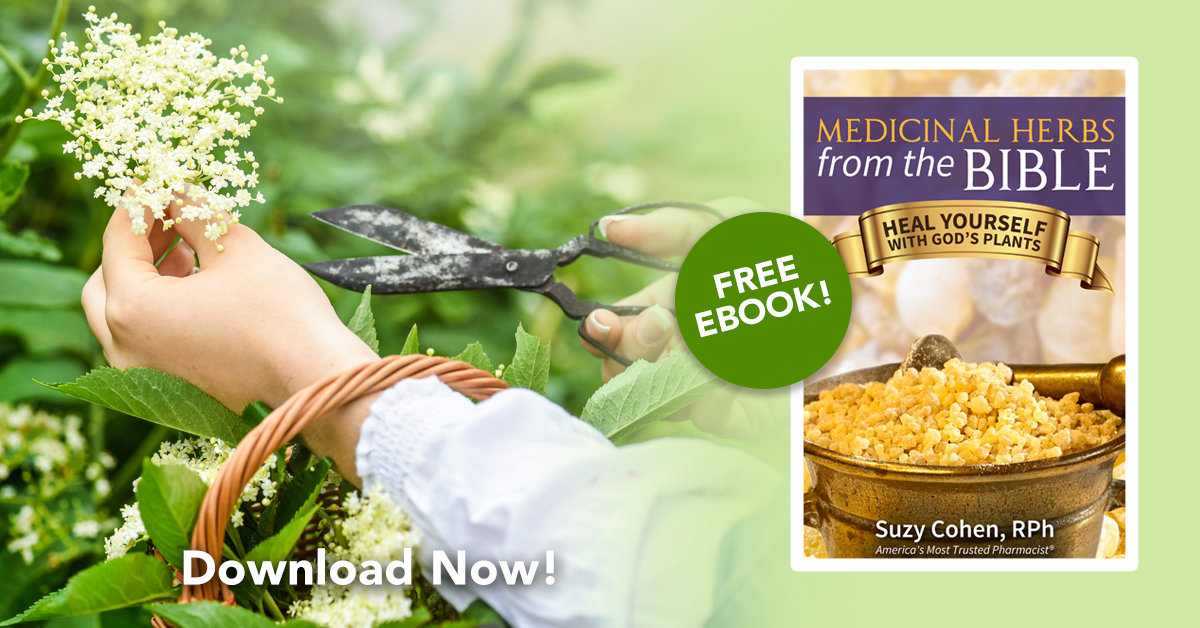What's On This Page?
ToggleWhen it comes to your garden, are you inadvertently throwing out the healthiest plant of all? Dandelion greens might be considered a weed, but this potent plant contains an impressive arsenal of nutritious compounds that you may want to your diet. Dandelions, as in Taraxacum officinale.
This notoriously bitter weed is packed with protein, minerals, and more vitamin C than spinach!
As a side note, everyone has kind of gone kale crazy, don’t you think?! LOL – it reminds me of my favorite comedian Jim Gaffigan who hates kale. He says, “Can we stop with the kale propaganda already?” He pokes fun at kale a lot, which cracks me up. You can watch this video here. The entire plant is actually edible, though I’ve never eaten the whole thing, just the leaves. Some people literally harvest the yellow flowers before they open and fry them up in a pan with garlic, butter and other seasonings.
I have never done that, but there are recipes online. Definitely seek your doctor’s advice before consuming anything like this, especially if it’s a wild herb.
Today I’m just informing you of medicinal benefits, but by no means am I saying this is right for all of you. Like all herbs, there are potential allergies, too. Dandelion is very easy to harvest, remember it’s kind of like a weed; it grows everywhere! Take a minute to look at this beautiful time-lapse VIDEO of a dandelion flower filmed by Neil Bromhall by CLICKING HERE.
 And interestingly, this inexpensive plant is also sold at health food stores, especially in the produce section where the leaves are right next to the collard greens and kale. Dandelion and kale have about the same amount of beta-carotene by the way. Kale and dandelion do not taste the same. They share some similarities but not all. You may want to take 5 minutes to read my other article about kale by CLICKING HERE to read, The Case Against Kale.
And interestingly, this inexpensive plant is also sold at health food stores, especially in the produce section where the leaves are right next to the collard greens and kale. Dandelion and kale have about the same amount of beta-carotene by the way. Kale and dandelion do not taste the same. They share some similarities but not all. You may want to take 5 minutes to read my other article about kale by CLICKING HERE to read, The Case Against Kale.
Dandelion lends itself well to an impressive number of medicinal uses including blood sugar regulation, weight management and gastrointestinal function. What else can it deliver for your health? Here are some of the most noteworthy benefits of dandelion.
8 Ways Dandelion Plants Can Help You
Why should you consider adding this backyard weed to your diet? Below are some of the most significant health benefits of dandelions to know about.
1. Aids the Digestive System
Dandelions are known to help your digestive system in numerous ways. The plant is considered a diuretic, meaning that it reduces blood volume (and blood pressure temporarily) by reducing water volume in the body. It makes you urinate more than typical. So like many other natural plant-derived diuretics, this ability means it can improve the functioning of the pancreas, stomach, kidneys, and spleen without depleting your body’s potassium stores. Speaking of the digestive tract, my other blog might interest you, Apple Cider Vinegar – A Cure for Everything?
You may know of prescription diuretics HCTZ, furosemide and bumetanide, metolazone and others. Unlike dandelion, these prescription drugs aren’t really known to support the functioning of your other digestive organs, however, they are much stronger than dandelion.
Dandelion root also works as an herbal lipotropic. Lipotropic compounds are those that drive the breakdown of fats during the metabolism pathways that take place in your body.
In other words, dandelion breaks down and essentially flushes fat deposits from the liver to improve its functioning and increase bile production. If you’re interested in a fruity way to support liver health, read my other blog, 3 Interesting Reasons to Eat Papaya Seeds.
Likewise, dandelions provide plenty of dietary fiber that keeps you regular and promotes healthy probiotics. The plant has long been used in herbal medicine to treat constipation and other digestive problems. It’s from the bitter compounds, which is good for your liver.
2. It’s Highly Nutritious
When you look at the facts, dandelions far surpass the greens in your garden with regard to nutrition. Everything from the flower to the root is edible, and the entire plant contains important life-sustaining vitamins, minerals, and dietary fiber.
When eaten raw or cooked, dandelion greens are a stellar source of vitamins A, C, and K, and they even contain vitamin E, natural folate, and a variety of B vitamins. Surprisingly, dandelions have more beta carotene (which is converted to vitamin A in your body) than carrots and sweet potatoes, two foods that are orange in color and therefore known to have beta carotene. Again, dandelions out-carotene both of those!
You’ll also get a generous supply of crucial minerals, like iron, magnesium, calcium, and potassium with every serving.
3. It’s a Good Source of Antioxidants
You can thank the dandelion’s bitter taste for its antioxidant properties. If you can get used to more bitter foods (and less sugary ones), then your detox pathways that operate in your liver will thank you for better health! If dandelions are too bitter for your palate at first, pair them with something sweet, or add salt, vinegar or goat cheese to them.
These bitter compounds can neutralize free radicals and help improve the functioning of your immune system. Antioxidants also operate as a blood cleanser that strains and filters out the toxins in your blood, and they reduce your risk of developing diseases and showing signs of aging on your skin.
For a delicious way to add antioxidants to your diet, CLICK HERE to try my Amazing Antioxidant Smoothie recipe.
4. It Can Aid in Weight Loss
Though the facts are still forthcoming, there is evidence today that consuming dandelions can support WEIGHT LOSS by improving your fat-burning rate and metabolism, and simultaneously reducing fat absorption. This was seen in a STUDY of mice that showed that eating dandelions led to weight loss, thanks to the presence of chlorogenic acid, a compound known for lowering fat storage hormones, so you store less body weight. That’s how coffee works too; chlorogenic acid in coffee is a fat burner! Coffee has more than dandelions though.
The role of correlation versus causation is still not well understood here, so you might not experience the same results as these studies showed.
5. It Fights Inflammation
Inflammation is your body’s natural response to injuries, and it helps to initiate the healing process. However, too much inflammation leads to health problems like pain and permanent damage to your DNA and other body tissues.
Thanks to the presence of the antioxidant beta-carotene, dandelions can help protect your cells from suffering cellular damage and oxidative stress from inflammation. The flowers are also filled with polyphenols, another protective antioxidant that reduces your risk of developing the disease.
STUDIES show significant improvements in inflammation levels in cells treated with dandelion, and research with mice found that dandelion compounds led to lower inflammation markers overall. Could eating flowers help you with arthritis? Probably not, but it’s fun to think that way. I like herbal remedies that reduce pro-inflammatory cytokines, and dandelion is one of them.
Lipopolysaccharide is a compound that spawns harmful production of TNF alpha, (Tumor Necrosis Alpha) as well as IL-6 (Interleukin 6) and too much nitric oxide. This leads to stress, pain, and inflammation in your body. Disease-wise, it increases risk of heart attack, cancer, diabetes, thyroid cancer and much more. But there are two phytochemicals in dandelion that scientists study. They are called luteolin and chicoric acid and both of these compounds suppress the LPS-induced production of inflammatory cytokines. It’s a good thing!
6. It Can Help Control Blood Sugar
Two biologically active phytochemicals in dandelions (specifically, the chicoric and chlorogenic acid) show EVIDENCE of controlling your blood sugar levels. Research both with test tubes and mice indicates that the compounds improve the pancreas’s insulin production levels while improving how your body absorbs glucose in muscle tissue. Together, this makes your system more sensitive to insulin and reduces overall blood sugar levels. Part of these benefits might come because the compounds prevent your body from digesting starchy carbs efficiently, which prevents your blood sugar from spiking.
7. It May Lower Blood Pressure via Diuresis
Some evidence shows that sipping dandelion tea can lower your blood pressure levels. The plant contains potassium, a mineral that’s associated with lower blood pressure. To maximize the benefits, enjoy dandelions with other potassium-rich foods like bananas, peas, spinach and yogurt. Dandelion herbs, tea and extracts probably work to lower BP via the mild diuretic effect. If you’re a tea lover like me, CLICK HERE to read my article How To Make Herbal Tea for Your Troubles.

8. Useful as a Skincare Treatment
A dandelion treatment can help your skin start glowing again, as the plant has PROVEN to be successful in protecting the skin from damage due to sunlight, aging, and acne. Applying a leaf and flower extract immediately before or after intense sun exposure seems to reduce overall skin damage, though the root seems to make little difference.
Part of the benefits come from the fact that dandelion extract reduces skin irritation and boosts hydration, which reduces the effects of acne. It also increases the process of generating new skin cells, which slows down wrinkling. Speaking of skin and wrinkling and aging… and getting rid of dark circles, puffy eyes, dry skin and more… if you’d like my FREE ebook on this topic, click below.
How to Take Dandelion for Health Benefits
Ready to put this powerful plant to use for your health?
Using dandelions is more difficult than just pulling plants up from your yard, but only slightly.
If you do harvest your own, it’s critical that you source plants that haven’t been treated with chemical pesticides or other industrial contaminants. This means collecting flowers from a stranger’s yard isn’t always a safe bet. You might be better off getting your greens from a natural space like a meadow instead, or the produce section at your local health food store or Whole Foods, Sprouts, or Alfalfa’s.
Fresh dandelion greens (the leaves) can be used in fresh salads, sandwiches, smoothies, and teas. Their bitter flavor tends to be too strong for most, so if this is the case for you, blend a 50/50 mix of dandelions with a subtler green like spinach or Swiss chard. I would not use mustard greens for this, lol!
You could also saute the dandelion greens with some sweet fruits like pineapple. Consider grounding a few leaves of the greens along with basil into your pesto for a simple spread that can be incorporated into numerous dishes.
If fresh dandelion greens aren’t your favorite, you can find the plant in forms that range from tinctures to dried powders, capsules, and supplements. Dandelion wine is another full-flavored option to incorporate this plant in your life, as well as a dandelion syrup (which is kind of like honey, or un-honey to be precise).
How to Make Dandelion Tea
Dandelion tea is also simple to brew. Just place two cups of fresh dandelion in a saucepan (flowers and leaves, omitting the stems) and cover them with four cups of water. Bring the mixture to a boil and take it off the heat, letting it seep for at least three hours. Strain out the plant remnants and enjoy chilled or reheated.
If homemade tea isn’t your cup of tea, then buy commercially prepared dandelion tea bags, but double-check the brand and make sure they’ve sourced an organic supply. If you’re feeling extra ambitious, it’s also possible to roast the roots and grind them into a fine powder for a caffeine-free coffee alternative.
Possible Risks and Side Effects of Eating Dandelions
Dosage-wise, there’s little evidence you can do any harm from consuming too much dandelion unless the diuretic effect takes over, or you are allergic. Even so, it’s a smart idea to start with smaller amounts and work your way up over time to ensure that you don’t have an adverse reaction to the greens. For that reason, a lot of holistic practitioners (and you should check with you’re own) recommend sticking to about 5 grams a day for fresh greens (or dried) and one teaspoon per day of dandelion leaf tincture, juice, or extract. You can follow the directions on the product you purchase.
⚠️ Caution
While dandelions are considered a safe plant for most people, there are a few reported incidences of adverse reactions. Just like with raw unrefined stevia, some people with ragweed allergies are sensitive to dandelions too. You may be allergic to dandelion (and therefore need to avoid it) if you are sensitive to plants in the Asteraceae or “Compositae” family which among others includes, daisies, marigolds, chrysanthemums, calendula, stevia, tansy, ragweed, yarrow and many others. I talk about this in my other article, 10 Quick Ways to Relieve Itchy, Red Eyes which you can read by CLICKING HERE
There are reported incidents of people with sensitive skin developing contact dermatitis from a dandelion-containing skin treatment. Likewise, the plant sometimes produces unexpected reactions with prescription medications, especially antibiotics and diuretics which can cause many different reactions including dehydration.
As always, if you have any questions or concerns about herbal medicine, talk to a Naturopath, or a certified holistic physician, an acupuncturist, a massage therapist or a nutritionist so you can determine whether it makes sense for your particular situation.
Dandelion greens are a nutritious natural superfood. I doubt cutting up a few leaves into your salad will be a problem (unless you’re allergic). It’s considered a garden pest, but for some of you, it might actually have impressive health benefits so do your own personal research and speak to your own holistic doctor.
As with all herbal medicines, and prescription ones too… I recommend you start low and go slow.
If you’d like to learn more about Herbal remedies, check out my FREE ebook, Medicinal Herbs from the Bible. Just click on the picture below!
CLICK LIKE to FOLLOW Suzy Cohen – Get Important Health Tips

Suzy Cohen, has been a licensed pharmacist for over 30 years and believes the best approach to chronic illness is a combination of natural medicine and conventional. She founded her own dietary supplement company specializing in custom-formulas, some of which have patents. With a special focus on functional medicine, thyroid health and drug nutrient depletion, Suzy is the author of several related books including Thyroid Healthy, Drug Muggers, Diabetes Without Drugs, and a nationally syndicated column.


